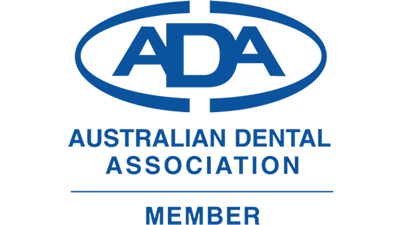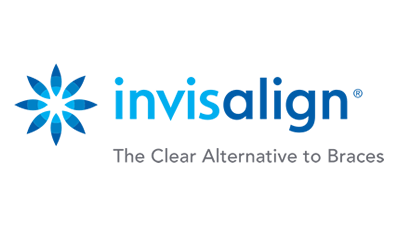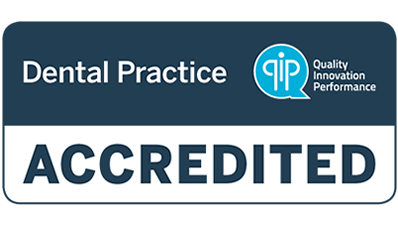The Importance of Oral Health & Dental Hygiene
Keeping your gums and teeth healthy is important
Regular brushing and flossing are known to maintain excellent dental and oral health. Is brushing and flossing alone adequate to accomplish the same thing?
Your teeth are one of the most sensitive parts of the human body, and they can be negatively affected by poor eating habits, unhygienic practices, and other factors. Ensuring your oral health is in good shape is one of the first steps toward achieving excellent overall health.
Nearly 90% of Australians reported having some form of tooth decay in a comprehensive Oral Health Tracker and study conducted by a leading thinktank in 2018. Smoking and excessive alcohol consumption were found to be major reasons for poor oral health.
Poor oral health can lead to severe health issues such as stroke, heart issues, Alzheimer’s disease, and diabetes, so you should be aware of the factors that affect your oral health .
Regular brushing and flossing can help maintain excellent oral health. Is it possible to keep excellent dental health with just brushing and flossing? In order to maintain excellent oral health, you should follow a ten-step procedure.
It is Important to Brush Teeth Twice a Day
It’s essential to brush twice a day to maintain excellent oral health. Although some dentists recommend brushing after each meal, many people find it difficult to follow this advice.
According to a survey, 51% of Australian adults brush their teeth twice a day. Despite this, over 90% of Australians still have dental health problems.
Improper brushing is one of the primary reasons for this drastic difference. When you brush, always choose a toothbrush with a small head and soft nylon bristles to prevent damage to your gums. Small heads that can cover your entire mouth provide better cleaning.
Place your brush at a 45-degree angle against your teeth, and use a toothpaste containing fluoride. You must clean your teeth and gum using a back-and-forth, up-and-down brushing motion. Never brush too hard on teeth or gum tissue.
You can keep your brush tilted vertically to clean the inner surfaces of your teeth while brushing. You should also clean your tongue and cheeks in the brushing process. It removes bacteria and microbes from those areas. Finally, you should rinse your mouth thoroughly.
It is advised that you brush your teeth for at least 2-3 minutes to remove bacteria and food deposits. You should replace your toothbrush every 3-4 months to prevent frayed bristles.
Rinse your Mouth after Each Meal
Rinse your mouth with fresh water after every meal to remove food residue. Your food can cause dental decay because of its acidic pH level, and water can effectively neutralize the acidic condition accordingly.
A person who believes that their brushing and flossing are suboptimal may benefit from using mouthwashes to improve their oral health. Chlorine dioxide or Listerine can be rinsed with to help reduce the amount of acidic or sugary foods you consume. Mouthwashes reduce the amount of acid in the mouth, clean deeper areas of the teeth and gums, and remineralize teeth.
Eat a Well Balanced Diet
Teeth are manufactured from calcium and phosphorus, and Vitamin C is crucial for gum health. Remineralising your teeth requires adequate phosphorous and calcium intake. By consuming low-fat milk, cheese, canned salmon, yogurt, dark green leafy vegetables, almonds, and beans and lentils, you can guarantee calcium intake.
Having a balanced diet with fish, eggs, lean meat, beans, dairy, and nuts can provide you with the required phosphorous. You may consume citrus fruit, potatoes, tomatoes, broccoli, and spinach, among others, to obtain Vitamin C. In order to maintain optimal oral health, you should consume a range of foods.
Drink more Water and Less Coffee
It is a great choice to improve your overall health and oral health by drinking more water. Fluoride, referred to as nature’s cavity fighter, is found in fluoridated water and can help you avoid cavities. According to government data from 2012, more than 70 percent of the population of Northern Territory receives artificially fluoridated water. By drinking tap water, you can boost your dental health, therefore.
Water also helps you to keep your mouth clean by removing food residue and acidity from your food. In addition, drinking the right quantity of water helps keep dry mouth at bay. Saliva plays an important role in maintaining oral health and combating tooth decay, and this will help ensure that you have enough saliva to eliminate dry mouth.
Avoid Certain Foods
Eating a balanced diet is as important for your teeth as it is your entire body. You should also say no or reduce the consumption of specific food products such as carbonated drinks, including sodas. These drinks come with excess sugar and acid that may damage your teeth.
Saliva production is reduced when you consume alcohol, resulting in dry mouth. Sour lollies and foods can also cause dental decay. You can also reduce your intake of sugary food and beverage items, including many energy and sports drinks, to safeguard your teeth.
Quitting Tobacco and Cigarettes are the Key to a Healthier Lifestyle
It is crucial to quit using chewing tobacco or smoking if you do. Your teeth might be discoloured if you chew tobacco or smoke. Your teeth and gums may become damaged and it can cause gum disease. Bacteria might also build up in your teeth and gums as a result of tobacco. Gum disease may make dental treatments less successful.
Using tobacco can also compromise your immune system and cause dental and overall health issues. Plaque buildup on your teeth is also more frequent. Oral cancer, in particular, can result from regular tobacco use.
Avoid Excessive Teeth Bleaching
People who want to restore the natural colour of their teeth can benefit from teeth whitening. However, bleaching teeth too frequently can have adverse effects.
Using an excessive amount of teeth whitening chemicals can lead to enamel erosion. It can also cause gum irritation and increase tooth sensitivity. Are you aware that using excessive amounts of peroxide-based whitening products can result in translucent teeth, even more so than white ones? It can discolour your teeth, especially at the edges.
Having Regular Dental Check-ups is Important
It’s important to keep your teeth and gums healthy by having regular dental check-ups. Your dentist will examine your teeth and provide you with professional teeth cleaning during every six-month dental appointment.
Your teeth, gums, other parts of your mouth, face, head, and neck will be examined for swelling, redness, dental issues, and more. You will receive the necessary dental care after the dentist examines them. Finally, your teeth will be cleaned and tartar will be removed from their surfaces. Regular dental check-ups can help you detect early signs of dental and other health problems, including oral cancer, and get timely treatment.
Conclusion
It’s vital to keep your oral health in good shape. Maintaining good oral health allows you to interact with people more comfortably and enjoy your favourite foods. In addition, keeping your oral health in good condition prevents you from developing a number of dental issues, some of which may even jeopardize your overall health.
Regular dental visits and good hygienic practices can help you maintain excellent oral health.




